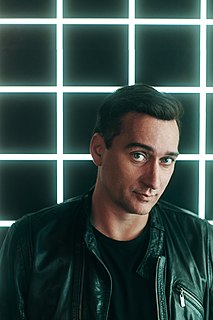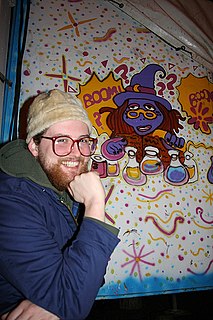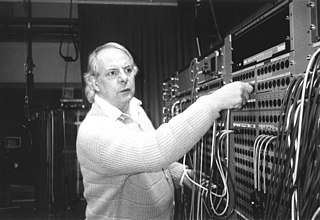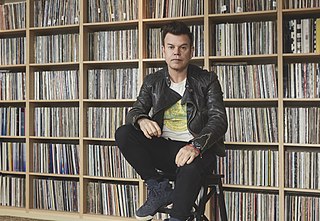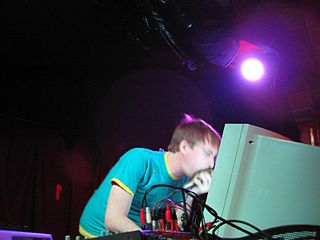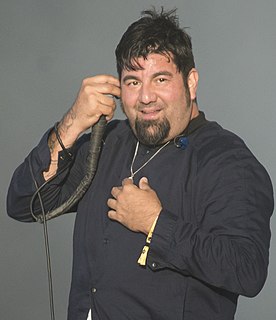A Quote by Max Tundra
People call me a bedroom electronic musician, which I suppose I am. But I hate most electronic music; I find it really boring.
Related Quotes
In some ways it's hard to see electronic music as a genre because the word "electronic" just refers to how it's made. Hip-hop is electronic music. Most reggae is electronic. Pop is electronic. House music, techno, all these sorts of ostensibly disparate genres are sort of being created with the same equipment.
I'm trying to fly the flag for the days of electronic music where people who are making it are also building the gear because that was what was happening in the very early days of electronic music. And that spirit is one of the things that really appeals to me about electronic music so I'm putting this forward as a way to keep that.
People always focus on people like me who use synthesizers, right, which are explicitly electronic and therefore obvious. "Ah, yes, that's electronic music." But they don't realize that so is the concept of actually taking a piece of extant music and literally re-collaging it, taking chunks out and changing the dynamics radically and creating new rhythmic structures with echo and all that. That's real electronic music, as far as I'm concerned.
Up until the rise of electronic music, if you were a musician in Portugal or Germany or Italy or Japan, and you didn't sing in English, you really were limited: You could be successful in the country where people understood your language. The world of electronic music is completely international. You have DJs from Finland making huge records for people in New Zealand, DJs in South Korea making huge records for people in France. By the fact that it doesn't cost anything to make, and that it transcends language, nation it accidentally accomplishes a lot of really remarkable things.
The place of electronic music, culturally and socially, is today completely different - it is now everywhere, and it has been totally accepted. Consequently, there is now a younger generation that is more focused on making great electronic music, good parties, and having fun, where there is not any more so much need for cultural and ideological statements in electronic music itself.
With the violin, for example, one understands culturally that the sound comes from the instrument that can be seen. With electronic music, it is not the same at all. That's why it seemed so important to me, from the beginning of my career, to invent a grammar, a visual vocabulary adapted to electronic music.
Everybody has their own approach to songwriting. When you're an electronic musician, the whole writing process just depends. Some people have a very live way of writing electronic music, very improvisational. They set up a lot of gear and do live takes. I'm concerned with having a specific kind of sound. There's not one second that I haven't put thought into. I put almost as much time into my live shows as I do into writing music, but they're two completely different processes. Some people think the way I perform live is how I write songs, which isn't true at all.





